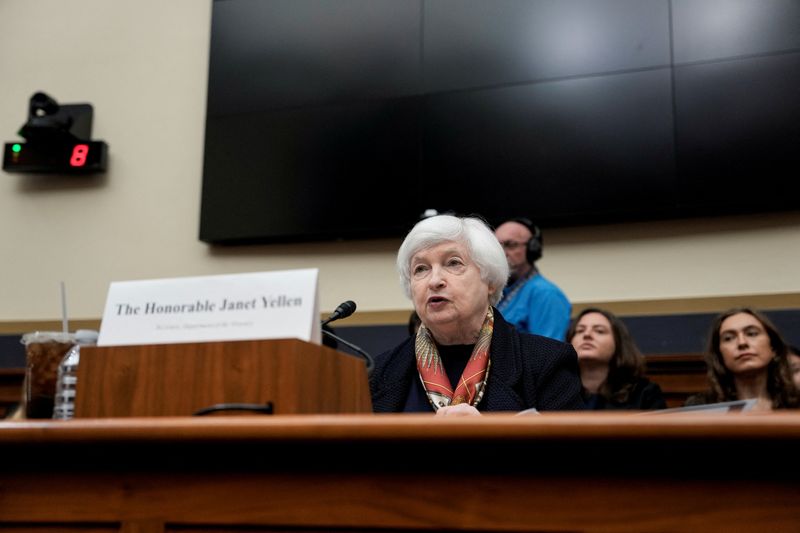U.S. Treasury Secretary Janet Yellen is set to deliver a critical assessment of the economic proposals put forth by Republican presidential candidate Donald Trump, particularly regarding his support for broad tariffs and tax cuts. Though Yellen is expected to refrain from mentioning Trump by name in her address to the Council on Foreign Relations, her remarks, according to a report from the New York Times, will highlight the potential adverse effects of such policies on the U.S. economy. She contends that sweeping, untargeted tariffs could lead to inflation by increasing prices for American families and undermining the competitiveness of U.S. businesses.
Yellen’s warnings come at a time when economic concerns are paramount for voters ahead of the 2024 presidential election, with many considering the economy the most significant campaign issue. Trump has prioritized tariffs as a central theme of his economic strategy, proposing aggressive measures not only against competitors like China but also against traditional allies like the European Union. Yellen’s critique implies that such an approach could lead to price hikes, effectively burdening consumers and potentially stalling economic growth.
In a recent interview with Bloomberg News, Trump defended his economic stance, arguing that his trade policies would invigorate American manufacturing and generate the necessary revenue to mitigate concerns over an expanding deficit. His rhetoric emphasizes a belief that imposing tariffs will benefit the domestic economy by shifting production back to the United States. Trump’s assurance that his fiscal strategies will provide a viable solution to the nation’s budgetary challenges is likely to resonate with voters concerned about fiscal responsibility.
Despite Trump’s claims, Yellen’s impending speech reflects a broader consensus among economists who are wary of the potential negative implications of protectionist trade policies. By highlighting the risks associated with untargeted tariffs, Yellen seeks to underscore that such measures may not only inflate consumer prices but also create inefficiencies in the market. Businesses could face increased operational costs and a tougher competitive landscape both domestically and internationally, which could stifle innovation and growth in various sectors.
As the election cycle progresses, economic vulnerabilities, including inflation and trade deficits, will become recurrent themes in political discourse. With Trump advocating for bold economic measures while facing opposition from established economic authorities, the debate surrounding the effectiveness and consequences of such policies is poised to deepen. Voters will need to weigh the promises of revitalization against the warnings about potential inflationary pressures and the overall health of the U.S. economy.
Ultimately, Yellen’s forthcoming remarks will contribute to the ongoing dialogue about the ramifications of Trump’s economic strategies, emphasizing the need for comprehensive and targeted policies rather than broad, sweeping measures. As the stakes rise in the 2024 election, the implications of trade and fiscal policies will be a crucial consideration for voters who wish to ensure a stable and prosperous economic future. The traditional views held by established economists may clash with Trump’s bold assertions, setting the stage for a heated debate over the best path forward for the American economy.

